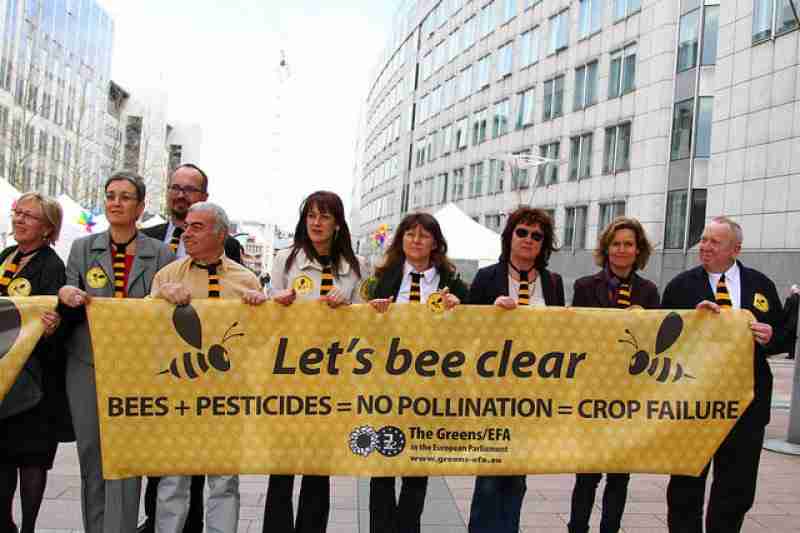EU countries [Ocotber 22] voted not to extend the license of the insecticide thiacloprid when it expires at the end of April 2020.
…
A peer review conducted by the European Food Safety Authority earlier this year all but condemned the pesticide, as the results classed it as being “presumed” to be toxic for the human reproductive system.
…
The study also cast doubt over what impact the chemical manufactured by German agrichemical giant Bayer has on bees. EFSA could not conclude that the risk to bees was low because of gaps in the available data.
As a neonicotinoid insecticide, thiacloprid works in a similar way to the three neonics that were banned in the EU last year over concerns they are harmful to bees.
…
Campaigners have signed an almost 400,000-strong online petition against thiacloprid, mainly focusing on the pesticide’s impact on bees and pollinators.
Read full, original article: EU bans neonicotinoid pesticide thiacloprid from 2020



































